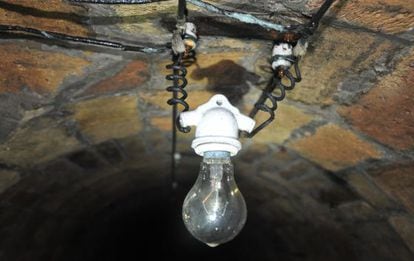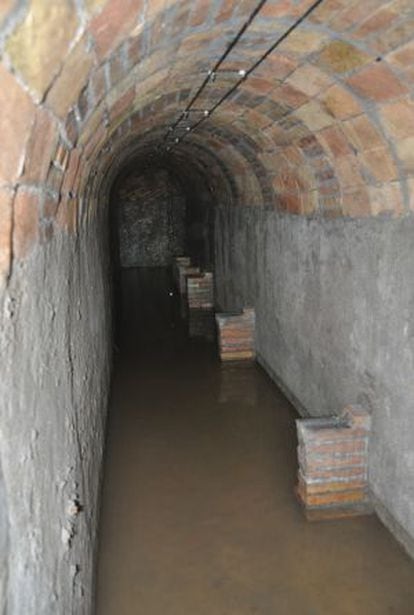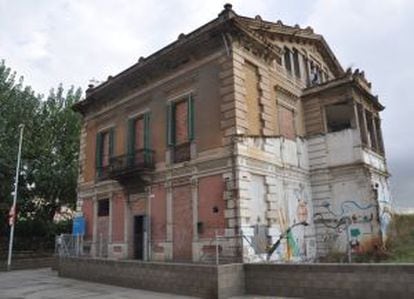Civil War air-raid shelter that time forgot uncovered in Barcelona
Tunnels discovered under derelict house are just as last occupants left them


There are places that appear trapped in time. That’s surely what the four people who discovered a Spanish Civil War air-raid shelter in Barcelona in late October must have thought. More than 75 years after the end of the conflict, during which General Francisco Franco’s forces – with German and Italian help – carried out around 200 bombing raids, the refuge is exactly as the last people to seek shelter there would have left it.
The shelter lies underneath a former private residence known as the Torre de la Sagrera, in the city’s San Andreu district, close to where Barcelona’s new rail hub is under construction. Until recently, the property, which dates back to 1875, had been inhabited by squatters, but is now to be turned into a neighborhood community center.
Consisting of a network of tunnels, the shelter runs for 84 meters under the house, and only came to light during work to assess the building’s foundations. “We came across a temporary wall, and when we knocked it down, a stairway was discovered that led down to a cellar,” says Carme Miró of the Barcelona Archeology Service (SABCN). She and her colleagues soon established that the basement had been used as an air-raid shelter, and the space was subsequently checked out by the Catalan regional police.

“We had to use breathing equipment, because of the lack of oxygen, but those who went down there established that everything was in good shape: there were benches, latrines for men and women, ventilation shafts, a water source, and other objects, such as bottles of something like brandy … Even the electrical wiring was still in working order, including a bulb with the filaments still in place – I’m sure it would work,” says Miró.
“We have found more than 1,350 air-raid shelters from the Civil War, but few in such good shape as this, which has been untouched since the conflict ended. We had no idea it existed,” she says. During the war, Barcelona city authorities created around 100 air-raid shelters, but many more were built by the civilian population underneath houses, and the majority have never been catalogued.
Miró says the existence of benches and latrines suggests that the refuge had been created by the authorities for residents of the Sagrera neighborhood, rather than being solely for the former occupants of the house. Following the discovery of the shelter, Miró and her colleagues have looked into the history of the building, which was originally built for the owner and then manager of the nearby La Española textile factory, which was bought by British company Coats in 1903.
In the summer of 1937, a year into the Civil War, a neighborhood association asked the Barcelona city authorities to build an air-raid shelter. That fall, the street the house is located on, Berenguer de Palou, was dug up and a concrete ditch built, which was intended to be used after the war as a sewer tunnel, explains Miró.

Almost half the shelter is flooded, and after an initial assessment of its state of repair, has been closed up again until the water can be pumped out and a permanent way to get air down into the space can be found.
Miró says that in the meantime work will continue in the rest of the building to convert it into a community center. Restoration of the air-raid shelter will have to wait, though the local council has already agreed to eventually open it to the public. In January, the entire building will be included on a list of more than 3,000 places of archeological and historical interest in Barcelona.










































